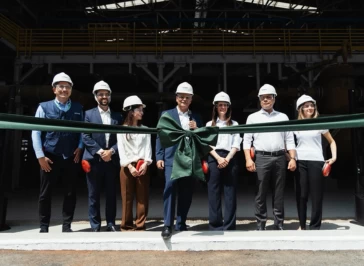-
About Unipar
Voltar para o menuAbout UniparLeader in the production of chlorine and soda and second in PVC in South America. It is one of the main suppliers to the sanitation and construction industries, also serving the paper and cellulose, cleaning, aluminium, toy and other industries.Learn more
-
Products and Solutions
Voltar para o menuProducts and SolutionsUnipar offers products for different sectors and services, developing customized solutions for different needs.Learn more
-
Sustainability
Voltar para o menuGuidelines ESGSustainabilitySustainability is part of Unipar's mission, values and strategy.Learn more
- Social Responsibility
- Careers
- Contact Us









































